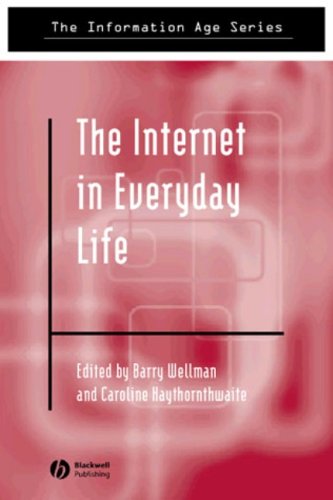

Most ebook files are in PDF format, so you can easily read them using various software such as Foxit Reader or directly on the Google Chrome browser.
Some ebook files are released by publishers in other formats such as .awz, .mobi, .epub, .fb2, etc. You may need to install specific software to read these formats on mobile/PC, such as Calibre.
Please read the tutorial at this link: https://ebookbell.com/faq
We offer FREE conversion to the popular formats you request; however, this may take some time. Therefore, right after payment, please email us, and we will try to provide the service as quickly as possible.
For some exceptional file formats or broken links (if any), please refrain from opening any disputes. Instead, email us first, and we will try to assist within a maximum of 6 hours.
EbookBell Team

0.0
0 reviewsThe Internet in Everyday Life brings together many pioneering studies that systematically investigate how being online fits into everyday lives. Until now, the Internet has been treated and discussed as detached from daily life, occupying some separate sphere of social endeavor. This collection of original articles from leading scholars in North America, Asia, and Europe moves discussion of the Internet closer to home, showing how the Internet does not exist "out there" but is instead an integral part of daily work and home life.
Contributors show who is on the Internet and what they are doing there. They debate whether the Internet adds to or detracts from the well-being of individuals, communities, and societies. They demonstrate how the Internet affects friendship, social capital, social support, civic involvement, school, work, and shopping. They reveal the extent to which the Internet is supporting new forms of human relationships, and describe what gets dropped and strained when Internet hours are added to already full schedules.
The book goes beyond speculation to provide solid findings. Articles are informed by results from surveys, interviews, and ethnographic data about behavior on and with the Internet. Taken as a whole, this considered body of evidence should raise the level of debate about the impact of the Internet and raises serious questions about the popular myth that Internet use increases social alienation.